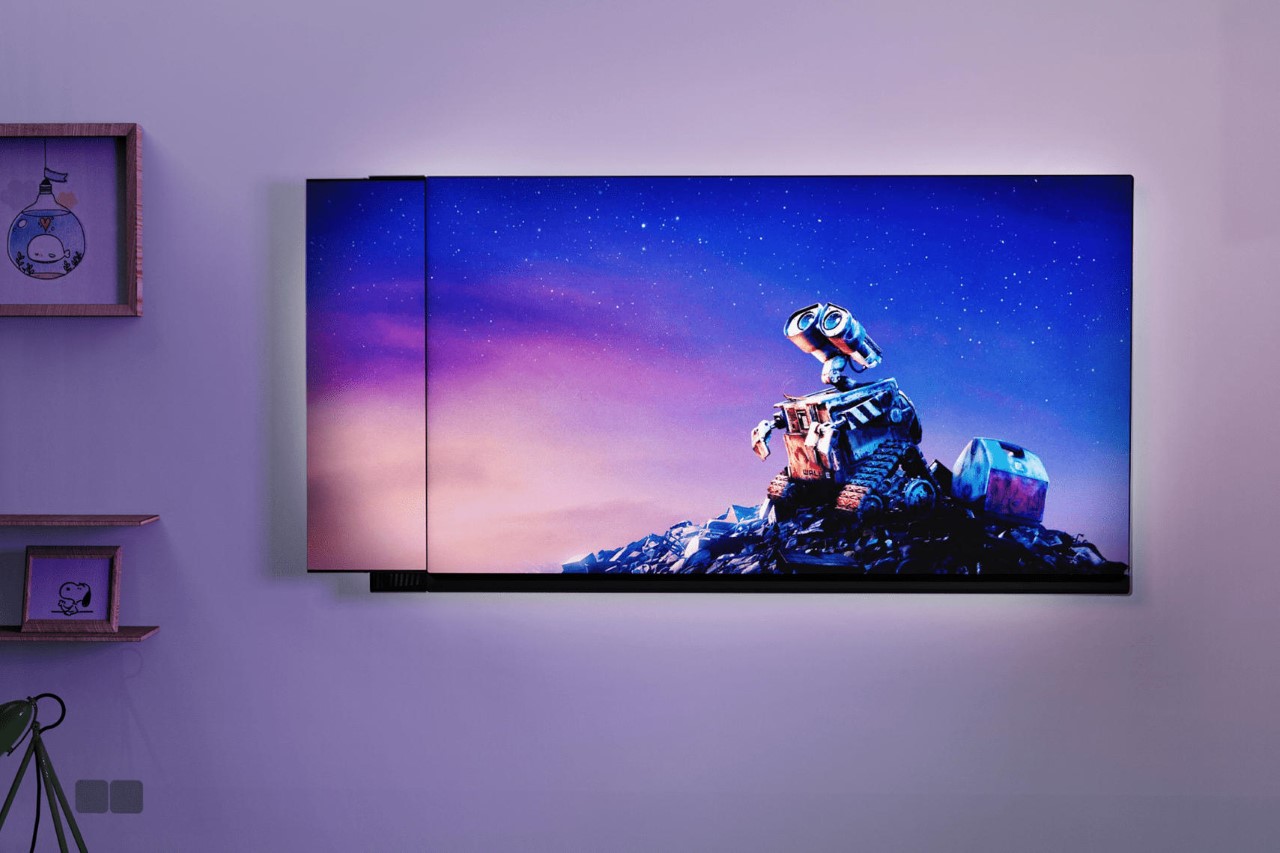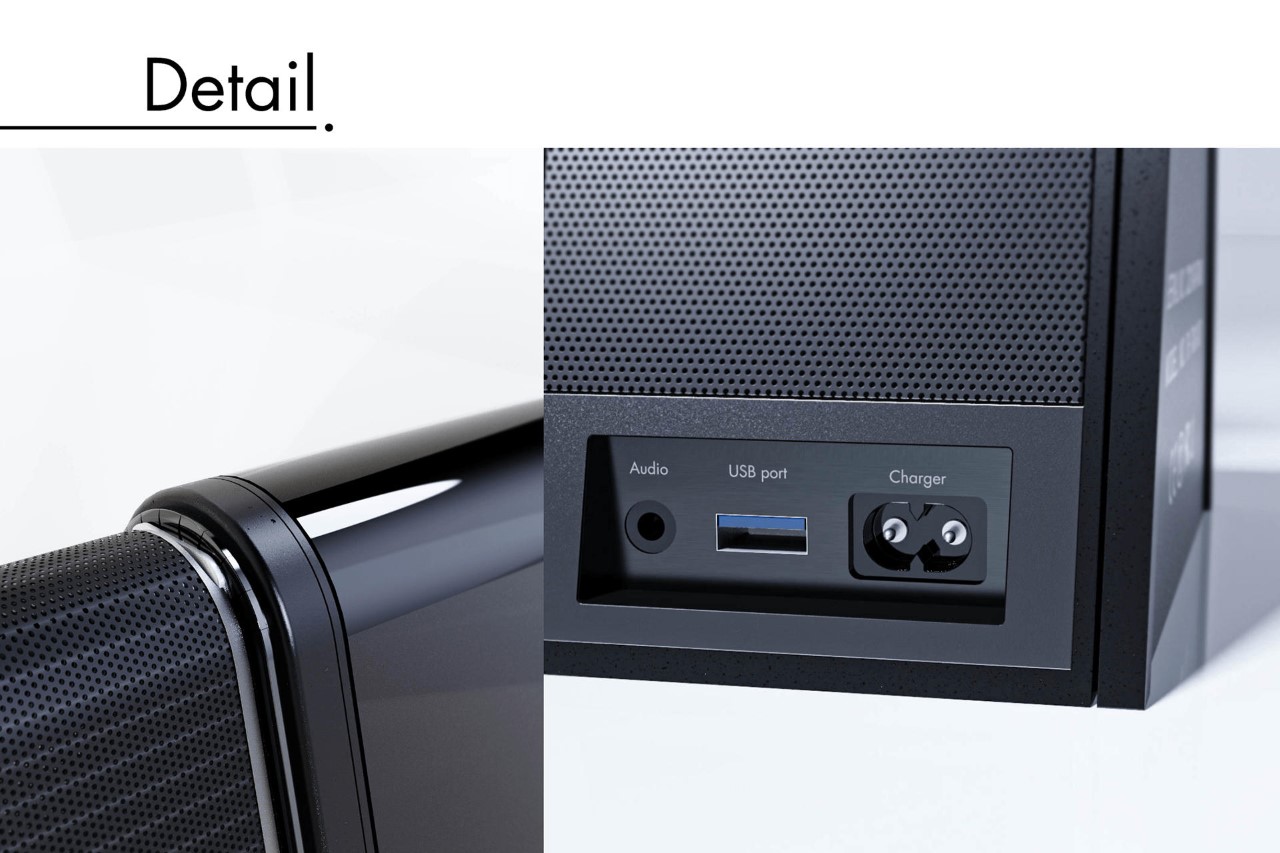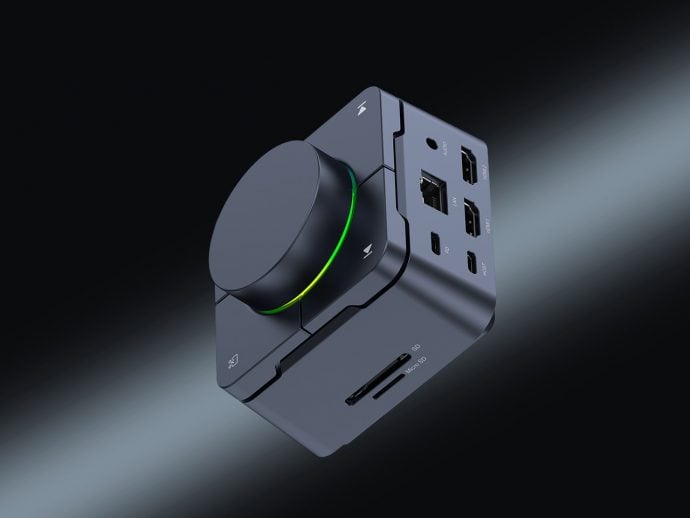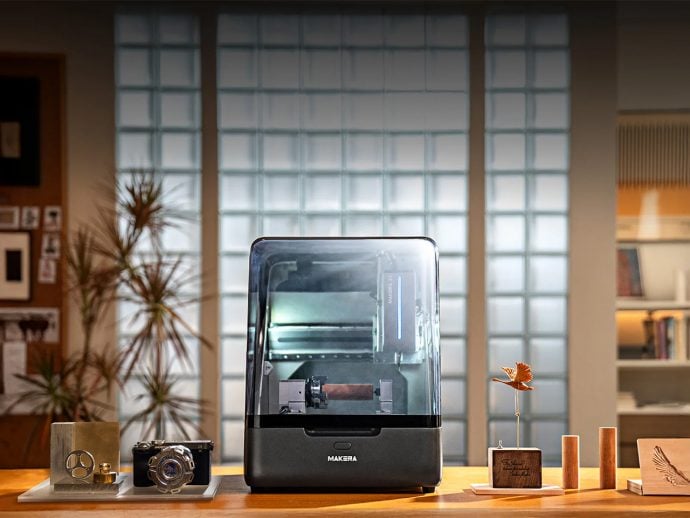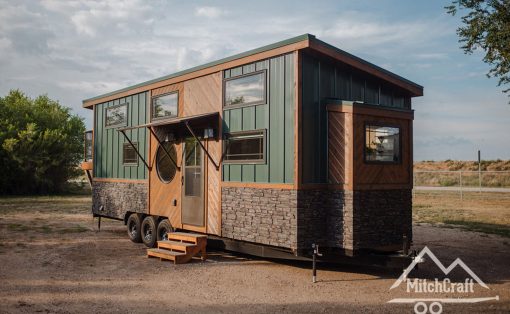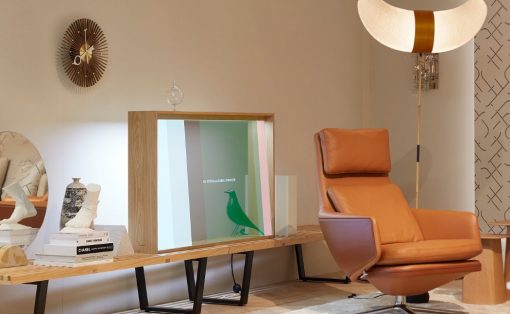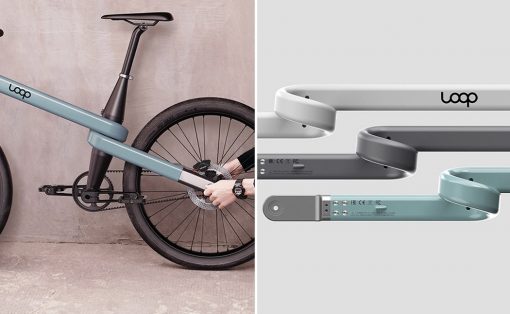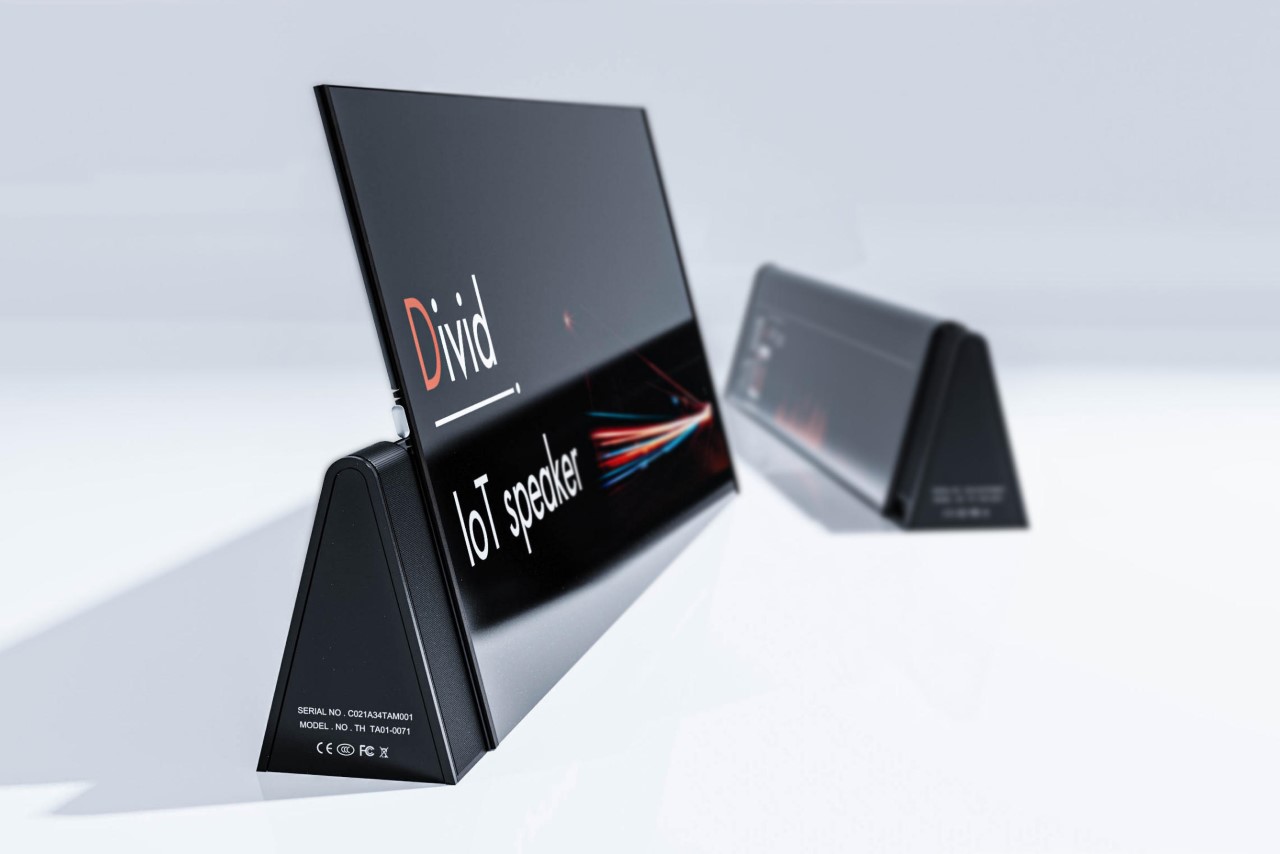
I can say with a great degree of confidence that every single company that’s made (and sold) a folding phone is absolutely shooting in the dark. They have no intention of abandoning their regular phones for foldables, but are purely engaging in a ‘display of innovation’ to show who’s doing folding hardware better. The fundamental problem still remains – do we even need folding phones? What would we even use them for?
Honestly, I don’t think we do, because there’s no task that’s so crucial that it requires a massive screen that folds in half in your pocket. The major bulk of smartphone users don’t need to watch Netflix at random moments in the day, they don’t multitask on their phones either, and browsing the internet on a square display is just fabulous… said nobody ever. Folding phones are absolutely unnecessary… but folding displays still have some merit. It’s just that we’ve been looking at them wrong. Meet Divid, a smart speaker with a folding display that presents a perfect use-case for flexible display units.
Designers: Jooahn Yoon & JBNU Industrial Design Club
Rendered on KeyShot: Click Here to Download Your Free Trial Now!
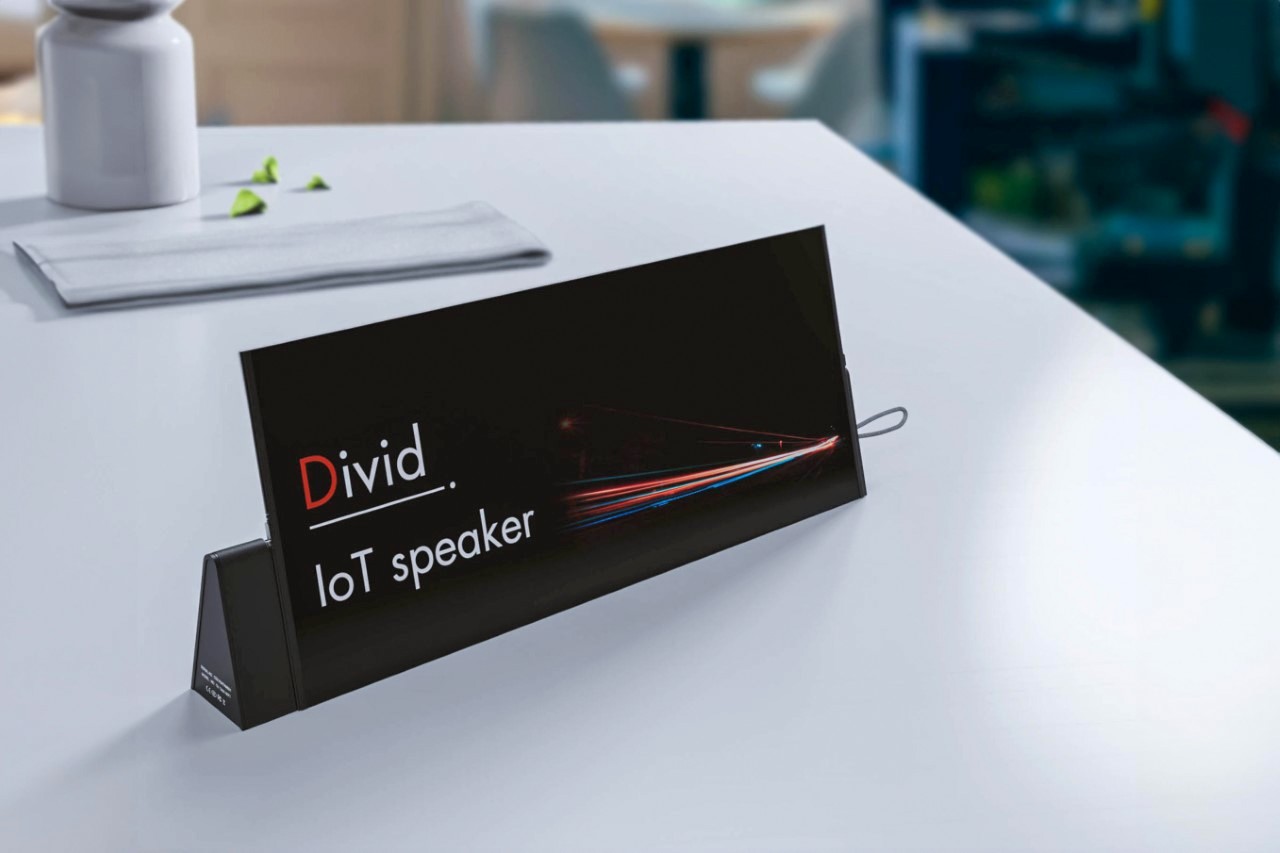
Divid isn’t your average smart speaker that plays music or tells you the weather. It’s a hybrid IoT device capable of a bunch of things. The speaker comes with a Toblerone-like shape, sporting a display that sits on one of its inclined edges. The display can either open flat, sitting like a canvas on an easel, or fold backwards, wrapping around the Toblerone to give you a two-part screen that faces both front and back… and the implications for this are incredible.
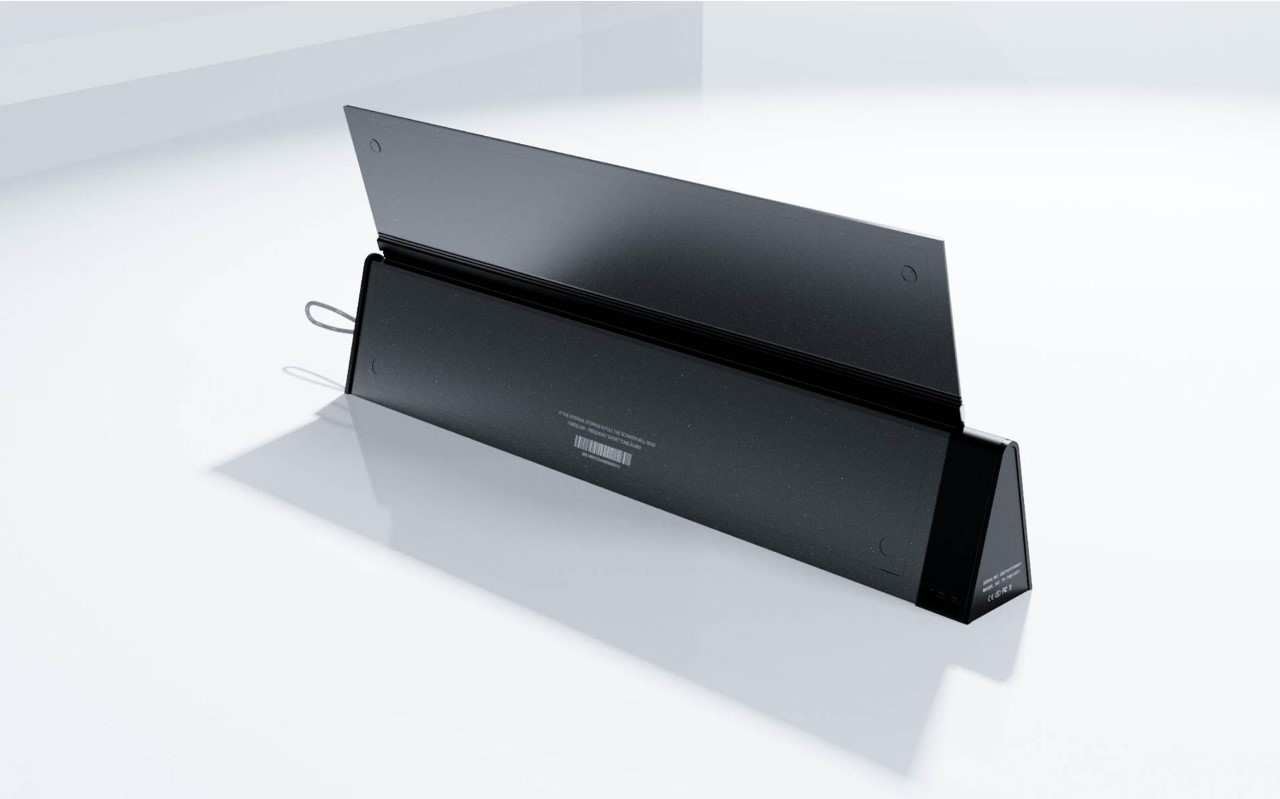
The ability to have a smart display or a smart speaker with a flexible display opens up a lot of work-related avenues. The Divid makes for a great unit to have at a concierge desk, a retail setup, at a meeting table, or even mounted on walls as a way-finding device. The screen folds open when you need something singular, and folds over to face the person opposite you when you need them to look at data like statistics, notes, cards, previews, invoice details, booking details, or even payment confirmations. The speaker just augments the Divid’s abilities, allowing for audio cues as well as music.
Being a smart speaker, it would probably work well at home too, displaying different information on both halves of the screen like allowing kids to watch different shows while facing each other at the dinner table! Divid’s designer also highlighted a rather novel way to extend your television’s screen simply by popping a Divid speaker on one side to give you extra screen estate.
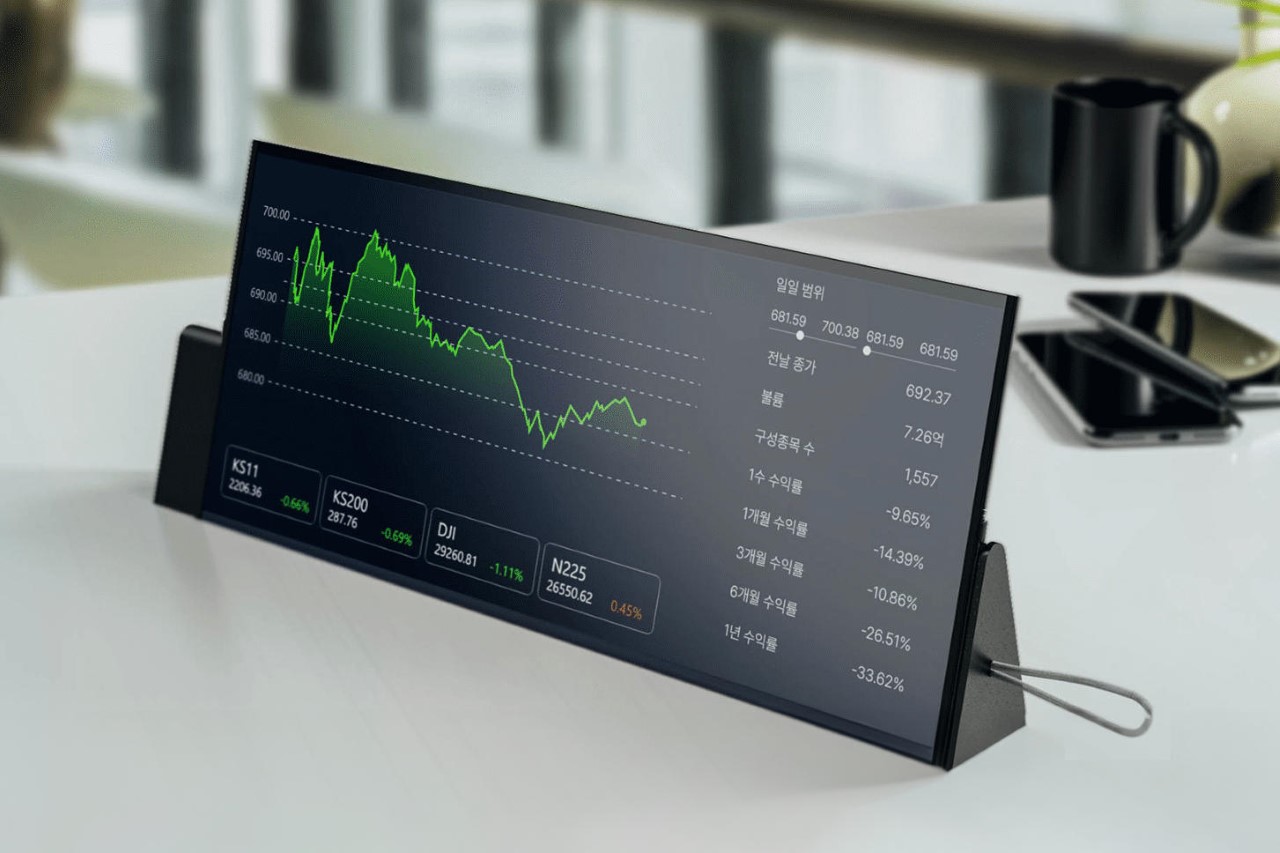
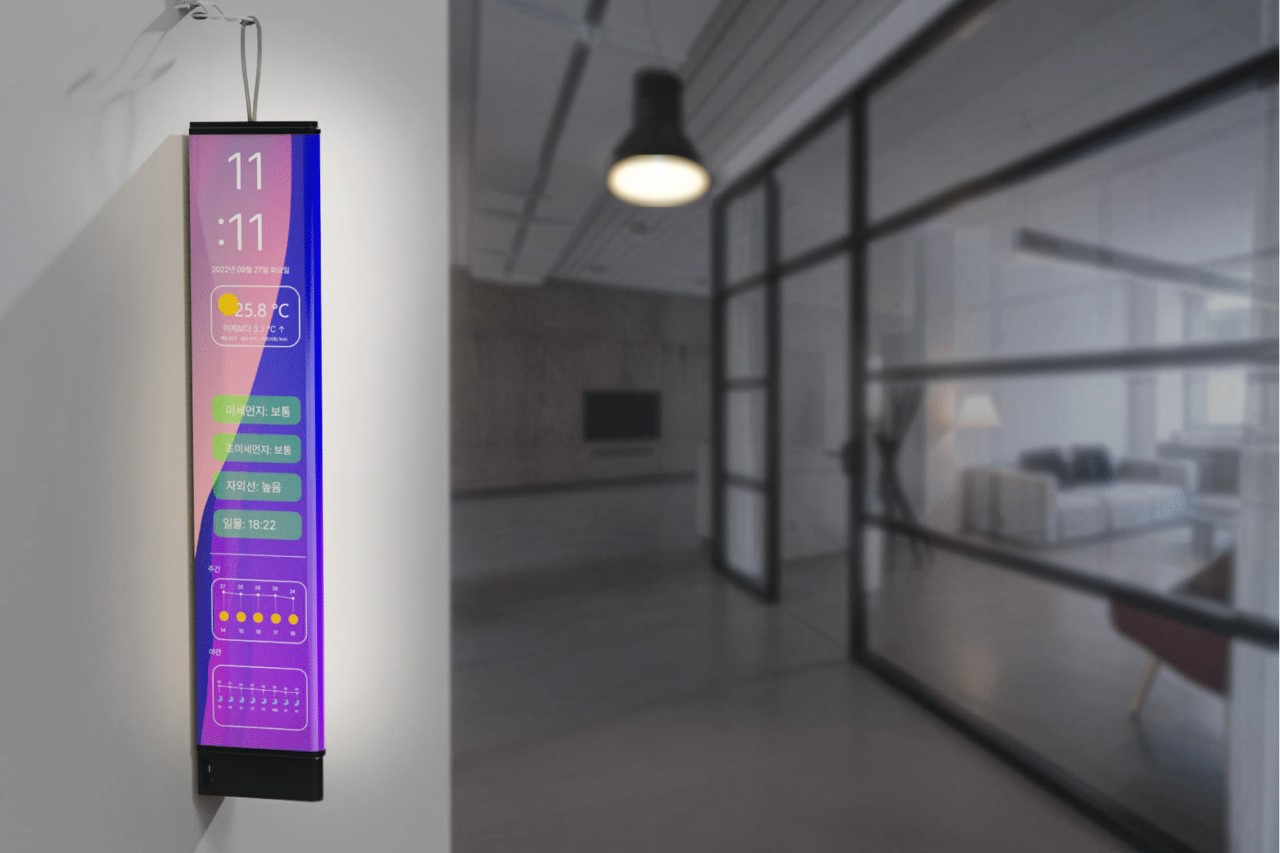
While the Divid is still a conceptual device, it does something that smartphones haven’t been able to do – highlight the usefulness of a folding display by putting it to actual good use. For long, folding smartphones have felt like a solution looking for a problem. By actually thinking of ways a folding screen could be useful, Divid actually gives flexible AMOLEDs a true purpose.
